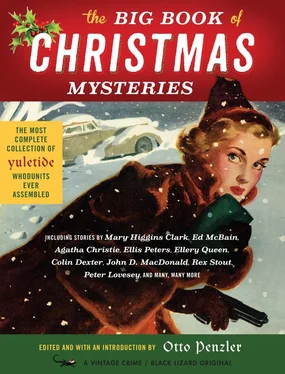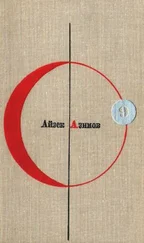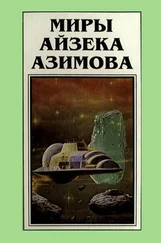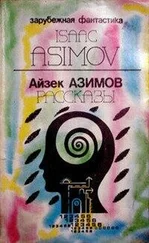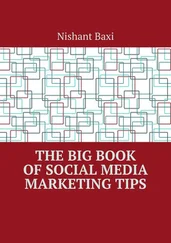The Chopham Affair
Edgar Wallace
It has been reported frequently — and it may even be true — that, during the height of his popularity in the 1920s, Edgar Wallace, the most successful thriller writer who ever lived, was the author of one of every four books sold in England. He self-published his first mystery, The Four Just Men , in 1905. It was a financial disaster, but he went on to produce one hundred seventy-three books, seventeen plays, countless short stories, and the original scenario for the first King Kong motion picture. “The Chopham Affair” was first collected in the author’s short story collection, The Woman from the East (London, Hutchinson, 1934).
• • •
Lawyers who write books are not, as a rule, popular with their confrères, but Archibald Lenton, the most brilliant of prosecuting attorneys, was an exception. He kept a case-book and published extracts from time to time. He has not published his theories on the Chopham affair, though I believe he formulated one. I present him with the facts of the case and the truth about Alphonse or Alphonso Riebiera.
This was a man who had a way with women, especially women who had not graduated in the more worldly school of experience. He described himself as a Spaniard, though his passport was issued by a South American republic. Sometimes he presented visiting cards which were inscribed “Le Marquis de Riebiera,” but that was only on very special occasions.
He was young, with an olive complexion, faultless features, and showed his two rows of dazzling white teeth when he smiled. He found it convenient to change his appearance. For example: when he was a hired dancer attached to the personnel of an Egyptian hotel he wore little side whiskers which, oddly enough, exaggerated his youthfulness; in the casino at Enghien, where by some means he secured the position of croupier, he was decorated with a little black moustache. Staid, sober, and unimaginative spectators of his many adventures were irritably amazed that women said anything to him, but then it is notoriously difficult for any man, even an unimaginative man, to discover attractive qualities in successful lovers.
And yet the most unlikely women came under his spell and had to regret it. There arrived a time when he became a patron of the gambling establishments where he had been the most humble and the least trusted of servants, when he lived royally in hotels where he once was hired at so many piastre per dance. Diamonds came to his spotless shirt-front, pretty manicurists tended his nails and received fees larger than his one-time dancing partners had slipped shyly into his hand.
There are certain gross men who play interminable dominoes in the cheaper cafés that abound on the unfashionable side of the Seine, who are amazing news centres. They know how the oddest people live, and they were very plain-spoken when they discussed Alphonse. They could tell you, though heaven knows how the information came to them, of fat registered letters that came to him in his flat in the Boulevard Haussman. Registered letters stuffed with money, and despairing letters that said in effect (and in various languages): “I can send you no more — this is the last.” But they did send more.
Alphonse had developed a well-organized business. He would leave for London, or Rome, or Amsterdam, or Vienna, or even Athens, arriving at his destination by sleeping-car, drive to the best hotel, hire a luxurious suite — and telephone. Usually the unhappy lady met him by appointment, tearful, hysterically furious, bitter, insulting, but always remunerative.
For when Alphonse read extracts from the letters they had sent to him in the day of the Great Glamour and told them what their husbands’ income was almost to a pound, lira, franc, or guelder, they reconsidered their decision to tell their husbands everything, and Alphonse went back to Paris with his allowance.
This was his method with the bigger game; sometimes he announced his coming visit with a letter discreetly worded, which made personal application unnecessary. He was not very much afraid of husbands or brothers; the philosophy which had germinated from his experience made him contemptuous of human nature. He believed that most people were cowards and lived in fear of their lives, and greater fear of their regulations. He carried two silver-plated revolvers, one in each hip-pocket. They had prettily damascened barrels and ivory handles carved in the likeness of nymphs. He bought them in Cairo from a man who smuggled cocaine from Vienna.
Alphonse had some twenty “clients” on his books, and added to them as opportunity arose. Of the twenty, five were gold mines (he thought of them as such), the remainder were silver mines.
There was a silver mine living in England, a very lovely, rather sad-looking girl, who was happily married, except when she thought of Alphonse. She loved her husband and hated herself and hated Alphonse intensely and impotently. Having a fortune of her own she could pay — therefore she paid.
Then in a fit of desperate revolt she wrote saying: “This is the last, etc.” Alphonse was amused. He waited until September when the next allowance was due, and it did not come. Nor in October, nor November. In December he wrote to her; he did not wish to go to England in December, for England is very gloomy and foggy, and it was so much nicer in Egypt; but business was business.
His letter reached its address when the woman to whom it was addressed was on a visit to her aunt in Long Island. She had been born an American. Alphonse had not written in answer to her letter; she had sailed for New York feeling safe.
Her husband, whose initial was the same as his wife’s, opened the letter by accident and read it through very carefully. He was no fool. He did not regard the wife he wooed as an outcast; what happened before his marriage was her business — what happened now was his.
And he understood these wild dreams of her, and her wild, uncontrollable weeping for no reason at all, and he knew what the future held for her.
He went to Paris and made enquiries: he sought the company of the gross men who play dominoes, and heard much that was interesting.
Alphonse arrived in London and telephoned from a call-box. Madam was not at home. A typewritten letter came to him, making an appointment for the Wednesday. It was the usual rendezvous, the hour specified, an injunction to secrecy. The affair ran normally.
He passed his time pleasantly in the days of waiting. Bought a new Spanza car of the latest model, arranged for its transportation to Paris and, in the meantime, amused himself by driving it.
At the appointed hour he arrived, knocked at the door of the house and was admitted...
Riebiera, green of face, shaking at the knees, surrendered his two ornamented pistols without a fight...
At eight o’clock on Christmas morning Superintendent Oakington was called from his warm bed by telephone and was told the news.
A milkman driving across Chopham Common had seen a car standing a little off the road. It was apparently a new car, and must have been standing in its position all night. There were three inches of snow on its roof, beneath the body of the car the bracken was green.
An arresting sight even for a milkman who, at seven o’clock on a wintry morning, had no other thought than to supply the needs of his customers as quickly as possible and return at the earliest moment to his own home and the festivities and feastings proper to the day.
He got out of the Ford he was driving and stamped through the snow. He saw a man lying face downwards, and in his grey hand a silver-barrelled revolver. He was dead. And then the startled milkman saw the second man. His face was invisible: it lay under a thick mask of snow that made his pinched features grotesque and hideous.
Читать дальше
